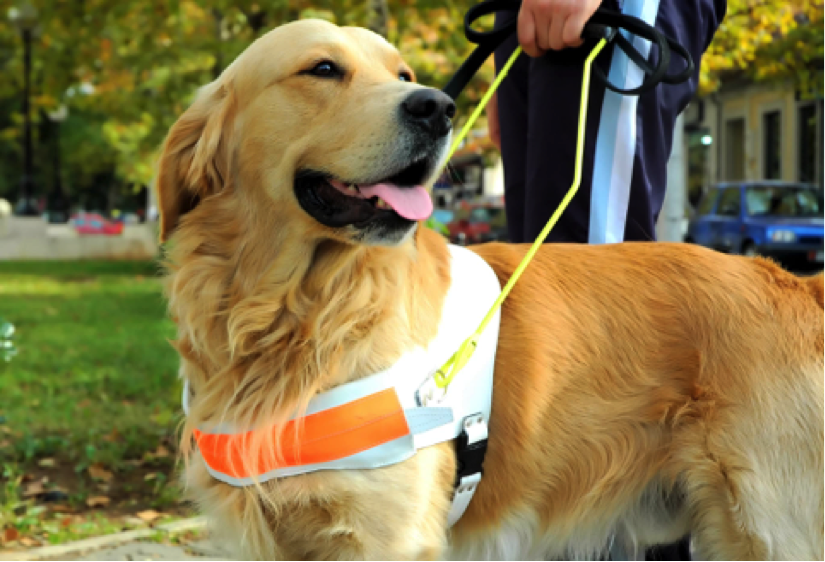In California, the United States, the service animal law recognizes only dogs as service animals under the American Disabilities Act. A dog can only be a service dog if they have been individually trained to work or perform tasks for a person with an impairment. Service dogs are allowed in all public areas to accompany the disabled person who needs assistance.
The service animal laws in California define services animals as ‘dogs that are individually trained to do work or perform tasks for people with disability’. This work or the tasks could include guiding people who are blind, pulling a wheelchair, reminding someone to take medication, calming someone with anxiety or PTSD and closing or shutting doors.
It should be reminded that although service dogs can provide support and are loved, they are no pets. This means they should not be treated as pets in public, including no petting or doing tricks. Dogs can provide calming, emotional support however they do not qualify as service animals under the ADA in California. These are referred to as emotional support animals and have been trained to act on the owner’s emotions, well-being, and safety rather than disability. All service dogs have to be trained to help with their owner’s specific requirements, for example, a guide dog for a blind person or assistance for someone in a wheelchair.
Public Places
Service dogs should be allowed in all public places, to help support their owner at all times. The California law allows people with a trained service dog to have full and equal access to all public places. Public places in California cover a broad range of places including more the ADA covers. Public places include any place where the general public can have access to such as restaurants, hotels, theatres, cinemas, shops, concert halls, and government buildings. This also includes medical buildings such as hospital and clinics, as well as public transports including trains, buses, boats and streetcars which can be private, public or licensed. Under California laws, anyone who interferes with a service dog by obstructing or harassing them can be punished with up to 6 months in county jail, or fined up to $2,500.
When a service dog is taken into a public place, the owner or occupier is allowed to ask whether the dog is needed because of a disability and what work the dog is trained to perform. The owner does not need to ‘prove’ that their dog is a service dog and having proof of registration is not required however if someone is caught pretending to have a service dog can be fined. It is advised to have some form of identification such as a training vest to avoid the general public trying to pet the service dog. It is also important to note that all service animals, under the ADA, must be harnessed, leashed or tethered. This is unless it interferes with the service nails work or the individual’s impairment. However, in this case, the service dog must be controlled at all times.
Housing
For housing in California, the Fair Housing Act ensures that everyone has equal access to housing accommodation. And anyone with an assistance or service dog should not be denied housing because of this. This means, anyone with a disability and requires assistance from a service dog should have the same chance of renting or buying housing as someone without an impairment or need of a service dog.
It is important that service dogs are treated with respect and left to work and provide support to their owner. The laws that are in place, including the Americans with Disability Act, Unruh Civil Rights Act, the California Disabled Persons Act and Fair Employment and Housing Act are all in place to protect the rights of people with impairments and the use of service dogs.

